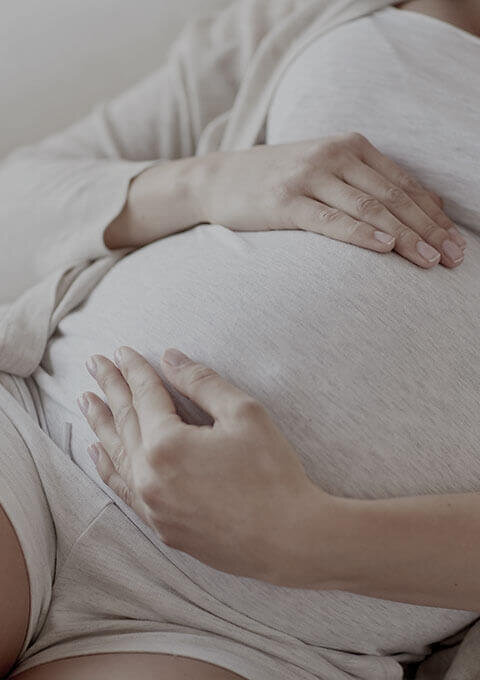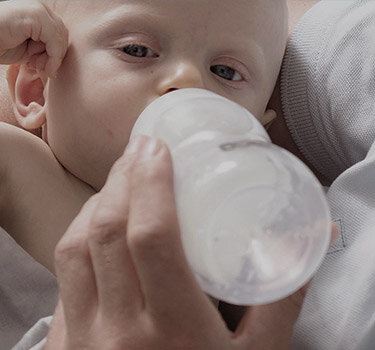There are some things you do not talk loud and often about, however, they are worth knowing when you are pregnant. Here you can read why pregnancy favors intimate infections, whether they can pose a risk to your baby, and how to recognize and treat them.
Consultation: Paweł Palacz gynecologist, obstetrician
This problem may be a bit embarrassing, but it is important to acknowledge it - pregnancy favors intimate infections. Some specialist even treat these infections as "normal" pregnancy ailments.
This situation results from hormonal changes in woman's body. Estrogen levels, as well as glycogen levels in vaginal mucosa increase, and as a result, the vaginal acidic environment is closer to alkaline environment and more favorable for development of fungi or infections. Additionally, the effectiveness of the immune system is reduced.
Regular urinalysis during pregnancy is a good practice. And around gestational week 37 you must have a vaginal swab culture for Streptococcus agalactiae.
During a normal pregnancy, the amniotic sac and fluid form a natural barrier separating the baby from the infected birth canal. The baby is safe.
However, untreated or incorrectly treated infections can significantly increase a risk of miscarriage or premature birth; they can also result in various complications, including breaking of waters, and then vaginal microorganisms penetrate into the uterus and amniotic fluid, and then directly into the baby's body.
Another crucial moment is the birth, when the baby is physiologically put at risk of contact with infected areas. Hence, the great importance of medical care and consultations in the last weeks of pregnancy.
You should know that an intimate infection does not mean a C-section is necessary. Usually, a correct treatment provided to a woman before the birth is sufficient.
Naturally present vaginal discharge consists of exfoliated cells from vaginal walls, cervix mucus and secretions of vestibular glands. Quantity and appearance of vaginal discharge are not constant. During a normal menstrual cycle, quantity and appearance of discharge changes (e.g., during ovulation, mucus production and excretion increase). Also during the pregnancy, quantity of vaginal discharge can increase naturally and physiologically.
However, when the color or appearance of a discharge changes, or you notice an unpleasant smell or white lumps, you must go to a doctor immediately. Infections during pregnancy can also be asymptomatic, diagnosed only by a doctor during a routine gynecological examination.
During infection, the appearance of external reproductive organs changes; they can become reddened, irritated, with small blisters.
A symptom of infection is a persisting and oppressive itching of intimate parts. You may also feel pain, particularly, while urinating and/or during a sexual intercourse.
Pay attention to correct hygiene of intimate parts.
Wash yourself twice a day with running water, with hands thoroughly washed, and using delicate, unscented intimate washes of acid pH, and then use a specially designated towel or disposable paper towels to dry the area.
You should know, however, that more frequent washing, e.g., after each visit to a toilet, is not recommended, as it can result in microorganisms depletion in the intimate parts.
We do not recommend the use of sponges or washclothes for intimate parts, as they are a perfect environment for fungal and bacterial development.
Wear cotton, breathable underwear.
If you use panty liners, change them frequently.
Have paper toilet seat covers and delicate intimate wipes with you. They will come useful when you need to use a toilet outside your place.
Talk with a doctor about prevention. Maybe, if you are prone to intimate infections, some pharmacological intervention should be considered. Probiotics containing Lactobacillus strains, applied orally or intravaginally, and accepted for use by pregnant women, can be helpful here.
Be careful with antibiotics. You may fall ill during pregnancy, with antibiotic treatment being the only solution. However, you should remember that antibiotics result in disturbances in the vaginal and the digestive tract microflora, causing side effects such as vaginal mycosis. To prevent this, you should take protective medicines during therapy with antibiotics, such as probiotics, possibly together with an intravaginal antifungal medicine. You must talk about it with your doctor.
Even if you are familiar with intimate infections, know your body, have previously effective ointments and remedies, do not be your own doctor! Now you are pregnant and must remember that not all previous management schedules and medicines are appropriate for you.
In pregnant women, treatment of intimate infections with home remedies can really turn out badly. You must immediately consult a gynecologist!
This infection is usually caused by anaerobic bacteria. Main symptoms include: thick, yellow, unpleasantly smelling discharges, strong itching and stinging of labia. Left untreated it can become a chronic condition, resulting in serious complications, including endometritis, miscarriage, premature birth, or septic birth.
Unfortunately, this is quite frequent condition in pregnant women. Mycosis is caused by candida species, usually Candida albicans. It is transmitted by a sexual route, but it can easily be caugth when using public toilets or swimming pools. Reduced immunity and use of antibiotics favour candida development. The symptoms include thick, whitish discharge, itching and stinging of the vulva. Untreated vaginal mycosis may cause more serious and difficult to treat complications. During the labour it threatens the baby, who, exposed to direct contact with pathogenic microorganisms, can develop congenital pneumonia (rarely) or conjunctivitis.
A disease of the urogenital tract caused by a protozoan parasite Trichomonas vaginalis. Apart from itching and stinging, the disease symptoms include gray-yellow or greenish discharge. You may feel pain when urinating or during a sexual intercourse. Infection in the urinary tract is accompanied by pollakiuria, pressure in the lower abdomen, and painful urinary urgency. The disease is transmitted mainly by sexual intercourses. Infections caused by T. vaginalis are relatively rare during pregnancy.
The disease is caused by Chlamydia trachomatis bacteria, transmitted by a sexual intercourse and contact with genital secretions. The disease symptoms usually are scarce, and they can include pus and mucus discharges, and itching in the intimate parts, or it can be asymptomatic. Chlamydial infections during the pregnancy are rare. However, untreated chlamydial infection before the pregnancy can have serious consequence for the future mum, including: adnexitis, pelvic inflammatory disease, scarring resulting in difficulties in becoming pregnant, infertility or increased risk of an extrauterine pregnancy.
You should know that tests for bacteria presence are available at pharmacies, but a laboratory test ordered by a doctor has higher diagnostic sensitivity.
You will become a mum any day now. You can't wait, but you are also terrified of the vision of long and difficult labour, particularly if you are expecting your first child. Knowledge is your best ally. Find out what is ...
The labour is over! Congratulations! It was really hard and now you need some time to regain your strength and good condition. This time is called puerperium. Read more to learn what is going on with your body, what you should ...
Winter has come with its beautiful snowy landscapes, but, unfortunately, also with awful weather and wet feet. Disease does not discriminate and everybody can go down with cold. How to deal with it when you are pregnant?
Are you getting ready for childbirth? Are you planning a natural birth, but you know from other women's experience that is not always possible? Or maybe you already have had a date for a C-section scheduled due to obstetric ...

